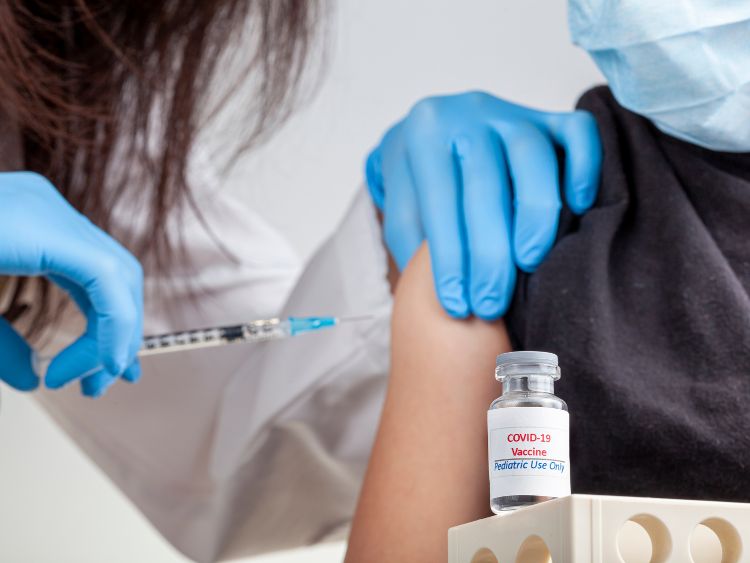Hey there! Have you ever thought about the incredible power of vaccines? August is a special time dedicated to raising awareness about just that. Welcome to National Immunization Awareness Month (NIAM)! This month-long event highlights the importance of vaccination for people of all ages. It’s an opportunity to spread the word about the benefits of immunization and to remind everyone to stay up-to-date with their vaccines. So, let’s dive into why immunization matters, how it works, and what we can do to support this crucial health initiative.
What Is National Immunization Awareness Month?
National Immunization Awareness Month is an annual observance held in August to promote the importance of vaccination for people of all ages. Vaccines are one of the most successful public health interventions, preventing millions of deaths and illnesses each year. NIAM is a time to educate and encourage everyone to get vaccinated, ensuring they are protected against preventable diseases.
The History of NIAM
National Immunization Awareness Month was established by the Centers for Disease Control and Prevention (CDC) to emphasize the significance of immunizations across the lifespan. The observance aims to highlight the importance of routine vaccination for children, adolescents, and adults, including the elderly.
Why Immunization Matters
Protecting Yourself and Others
Vaccination is not just about individual protection; it’s about community health. When you get vaccinated, you’re not only protecting yourself from potentially severe diseases but also helping to prevent the spread of these diseases to others, particularly those who are most vulnerable, such as infants, the elderly, and those with weakened immune systems.
Herd Immunity
Ever heard of herd immunity? It’s a form of indirect protection from infectious diseases that occurs when a large percentage of a population becomes immune to an infection, thereby providing a measure of protection for individuals who are not immune. When enough people are vaccinated, the spread of disease slows down or stops, protecting those who can’t be vaccinated due to medical reasons.
Economic Benefits
Vaccinations save not only lives but also money. Preventing diseases through vaccination can reduce healthcare costs by avoiding treatment for vaccine-preventable diseases. It also reduces the economic burden on families and communities by preventing the loss of income due to illness and care needs.
Common Vaccine-Preventable Diseases
Measles
Measles is a highly contagious viral disease that can lead to serious health complications, especially in young children. Symptoms include high fever, cough, runny nose, and a red rash. The MMR vaccine (measles, mumps, and rubella) is highly effective in preventing measles.
Influenza
Influenza, commonly known as the flu, is a viral infection that affects the respiratory system. It can cause mild to severe illness and, at times, can lead to death. Annual flu vaccination is recommended for everyone six months and older.
Hepatitis B
Hepatitis B is a liver infection caused by the hepatitis B virus (HBV). It can lead to chronic infection and increase the risk of liver failure, liver cancer, or cirrhosis. The hepatitis B vaccine is essential for protecting against this serious disease.
Vaccination Across the Lifespan
Infants and Children
Vaccinations start early in life, with a series of shots that protect infants and young children from 14 serious diseases, including diphtheria, tetanus, whooping cough, and polio. Keeping up with the recommended immunization schedule ensures that children are protected as early as possible.
Adolescents
As children grow, they need additional vaccines to maintain their immunity. Adolescents require vaccines such as the HPV vaccine to protect against human papillomavirus, the meningococcal vaccine to protect against meningitis, and a Tdap booster to protect against tetanus, diphtheria, and pertussis.
Adults
Adults also need to stay up-to-date with their vaccinations. Some vaccines, like the flu shot, are needed annually, while others, like the tetanus booster, are needed every ten years. Vaccines for shingles and pneumonia are recommended for older adults to prevent these painful and potentially serious diseases.
Special Populations
Certain populations, such as pregnant women and individuals with chronic health conditions, have specific vaccine needs. For example, pregnant women should receive the Tdap vaccine during each pregnancy to protect their newborns from pertussis (whooping cough).
How to Support National Immunization Awareness Month
Spread the Word
One of the best ways to support NIAM is by spreading the word about the importance of vaccination. Use social media, blogs, and community events to share information and personal stories about the benefits of vaccines.
Educate Yourself and Others
Take the time to learn about the recommended vaccination schedules for different age groups. Educate your friends and family about the importance of staying up-to-date with their vaccines. Reliable sources like the CDC and World Health Organization (WHO) offer valuable information on immunization.
Participate in Community Events
Many communities host events during NIAM to raise awareness about immunization. Participate in or volunteer at these events to show your support. You can also organize events such as vaccination clinics or educational workshops to inform others about the importance of vaccines.
Frequently Asked Questions
What is the importance of National Immunization Awareness Month?
National Immunization Awareness Month emphasizes the importance of vaccination for people of all ages. It aims to educate the public about the benefits of vaccines and encourage everyone to stay up-to-date with their immunizations.
Are vaccines safe?
Yes, vaccines are thoroughly tested for safety and effectiveness before they are approved for use. They are continuously monitored for safety and are one of the most effective ways to prevent serious diseases.
Can vaccines cause the diseases they are meant to prevent?
No, vaccines cannot cause the diseases they are designed to prevent. Some vaccines contain weakened or inactivated viruses, which cannot cause the disease. Others use only parts of the virus or bacteria.
Why do some vaccines require multiple doses?
Multiple doses of a vaccine may be needed to build and maintain immunity. The initial dose helps the immune system recognize the virus or bacteria, and subsequent doses strengthen the immune response and provide long-lasting protection.
Where can I get vaccinated?
Vaccines are available at various locations, including doctor’s offices, clinics, pharmacies, and community health centers. Check with your healthcare provider or local health department to find a vaccination site near you.
Summary
National Immunization Awareness Month is a crucial time to highlight the importance of vaccines in protecting public health. Vaccination is a safe and effective way to prevent serious diseases and their complications. By staying informed and spreading the word, we can all contribute to a healthier community. Remember to keep up with your vaccinations and encourage others to do the same. Together, we can make a difference!
Authoritative Links
- Centers for Disease Control and Prevention (CDC): https://www.cdc.gov/vaccines
- World Health Organization (WHO): https://www.who.int/immunization
- Immunization Action Coalition: https://www.immunize.org
- American Academy of Pediatrics: https://www.aap.org
- National Institutes of Health (NIH): https://www.nih.gov



